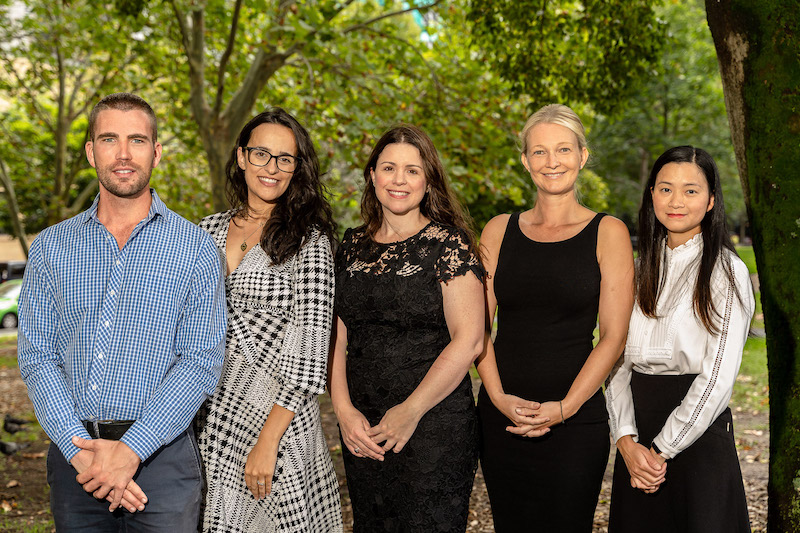HomeGround Sydney Bringing Developers, Tenants Together
It’s not surprising that many NSW property developers put the option of developing affordable housing in the too-hard basket.
To begin with, what is affordable housing? As a rule of thumb, housing is usually considered affordable if it costs less than 30 per cent of the household income.
This leaves room in individual and family budgets for the other costs of life without placing people in financial stress.
The reality is that many of us are paying much more for our housing and the lack of affordable housing options is placing more of us into housing stress.
A 2021 Productivity Commission report on government services estimated 50.2 per cent of low-income households in the private rental market were experiencing housing stress, a figure largely unchanged during the past 10 years.
While there’s been a slight easing of rental demand in metro Sydney in the year post COVID-19, just because more rental properties are available doesn’t mean they are affordable for people on moderate incomes, let alone people on low to very low incomes. Supply and affordability are the twin dilemmas.
Affordable housing schemes
Affordable housing schemes aim to provide housing for a wide range of people vital to the economy and to create vibrant, diverse communities, including essential workers in childcare, retail, health care and support services.
In other words, ordinary Australians. Affordable housing encompasses the full spectrum of housing types and is offered to tenants under strict income and other eligibility requirements.
In NSW, the planning system has been used to encourage the development of affordable rental housing.
Schemes provide incentives to the development industry in the form of grants, land contributions or planning incentives.
Planning incentives for affordable housing have been around for some years now, but navigating the planning issues, the property management requirements and the ongoing compliance regimes can feel like a lot of red tape.
From the developer’s perspective, affordable housing can be a game-changer for the realisation of some residential developments.
It might enable them to get greater yield from a site–with a positive impact on their profitability–in exchange for setting aside a percentage of homes for affordable housing for a defined time period, or require them to pay the council a levy to fund future investment in such housing.
In the case of rezoned government land, it may secure a developer the right to develop at all.
Ensuring compliance with legislation and eligibility for affordable housing is a specialist expertise.
An often overlooked yet critical requirement of affordable schemes is that the affordable housing component of any new residential development be tenancy managed by a registered community housing provider. Partnership with a community housing provider, who can deal with all the red tape, is generally the best option.

Addressing the challenges
Bridge Housing established HomeGround Real Estate Sydney as a not-for-profit real estate agency in April 2018 to help address these challenges.
The HomeGround team are experts in the management of affordable housing properties.
They ensure that tenants meet the strict eligibility requirements and compliance is guaranteed, removing the stress and management responsibilities.
They also ensure that developers can meet their complex compliance and legislative requirements.
The HomeGround network, which also operates in Victoria and the ACT, is one of a handful of licensed non-profit real estate agencies working in this space.
HomeGround says its professional property management by experienced, licensed people using bespoke systems is the cornerstone of its relationship with developer landlords, and allows them to manage all aspects of letting and tenancy management.
Property developer Simona Kamenev of Leroma said HomeGround Real Estate Sydney had quickly found good tenants with good references.
“We’re really happy with their services and would happily recommend them to others,” she said.
But long before a developer’s dream becomes bricks and mortar, HomeGround can advise on the affordable housing planning process, and the merits and requirements of different schemes.
It also partners with property owners and councils to manage the finished housing–whether full market or subsidised affordable rentals–on a fee-for-service basis.
A key difference between not-for-profit real estate agencies such as HomeGround and private agencies is that HomeGround’s profits are invested back into the community to help alleviate homelessness and support rental affordability for low-income earners.
“Sydney is the toughest housing market in Australia, and indeed, one of the toughest housing markets in the world. Only around 1 per cent of properties across the city are affordable for people on low incomes,” HomeGround manager licensee Fiona Ivanusa said.
There is growing recognition in the development industry of an ESG responsibility to make a positive contribution to the communities in which it operates.
The idea of ensuring more and a more diverse community of people can call Sydney home goes to the heart of the industry’s core business: Putting a safe, secure roof over people’s heads.
This social contract can be fulfilled in ways that scarcely impact the developer’s or landlord’s bottom line.
Bridge Housing has secured an ATO tax ruling that means any discount in market rent offered to provide the home via HomeGround as affordable housing at below market rent can be fully offset against a landlord’s taxable income.
Developing affordable housing is feasible and will do social good.
The Urban Developer is proud to partner with HomeGround Sydney to deliver this article to you. In doing so, we can continue to publish our free daily news, information, insights and opinion to you, our valued readers.














